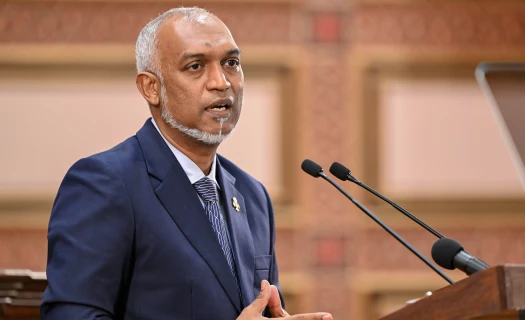Fri, 06 Feb 2026
|DHIVEHI
Turning Ramadan habits into lifelong practices
02 Apr 2025
|

Photo: PSM News
The holy month of Ramadan is a time of deep spiritual reflection, devotion, and self-discipline.
It is a period when Muslims across the world immerse themselves in worship, seeking divine blessings and striving to strengthen their connection with God. During this sacred time, mosques become vibrant centres of prayer, filled with worshippers of all ages, including young people and children. The sight of packed mosques is a heartening reminder of the enduring strength of faith within our communities.
However, as Ramadan draws to a close, a noticeable pattern emerges: the number of worshippers attending congregational prayers begins to decline. The spiritual enthusiasm that defines the holy month seems to fade, and many individuals gradually drift away from the routines of regular worship. This raises an important question—are we truly fostering a lasting spiritual transformation during Ramadan, or are our efforts confined to just one month each year?
Ramadan is not merely a time for fasting and prayer; it is a period of personal growth, moral refinement, and spiritual elevation. It instils self-discipline, encourages acts of kindness, and reinforces one’s commitment to religious duties. The essence of Ramadan extends far beyond its thirty days—it is meant to cultivate habits that endure throughout the year. If, once the month ends, we abandon the rituals and devotions we so diligently observed, then we must reflect on whether we have fully embraced the true purpose of this sacred time.
One of the lessons of Ramadan is consistency in worship. The five daily prayers (farḍ) are not exclusive to Ramadan; they remain a fundamental obligation for every Muslim, every day of the year. Islam places great emphasis on perseverance in good deeds, as the most beloved acts in the eyes of God are those performed consistently, even if they are small.
As we move beyond Ramadan, it is essential to sustain the positive habits developed during the holy month. Our relationship with faith should not be seasonal or confined to a specific period. Instead, the discipline, devotion, and self-restraint cultivated during Ramadan should serve as the foundation for a lifelong spiritual journey.
The significance of maintaining faith and devotion beyond Ramadan becomes even more evident when we reflect on the reality of Judgment Day. On that day, we will not be questioned solely about our worship during the thirty days of Ramadan, but about our entire lives—how consistently we upheld our prayers, how steadfastly we followed God's commands, and how sincerely we lived by the teachings of Islam. Our deeds will be weighed, and our faith will be evaluated not by seasonal devotion but by lifelong commitment.
Ultimately, Ramadan should not be seen as an isolated phase of heightened piety but rather as a stepping stone towards unwavering faith and devotion. The mosques that overflowed with worshippers during Ramadan should not become empty once the month has passed. Our commitment to prayer and worship should not diminish with the sighting of the new moon. Instead, we must carry forward the spiritual awakening that Ramadan brings and integrate it into our daily lives.
By doing so, we uphold the true essence of Ramadan—not as a fleeting period of devotion but as a transformative experience that shapes our character, strengthens our faith, and deepens our connection with the Almighty.








